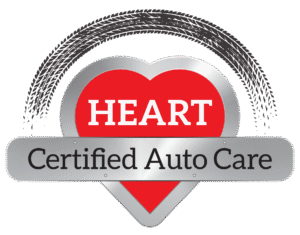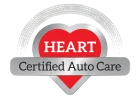Ensuring Safe Chevrolet Brake Pad Replacement in Wilmette


When it comes to maintaining your vehicle, one of the most critical aspects is ensuring your brakes are in top condition. This is particularly true for those who own a Chevrolet in Wilmette, as driving conditions can vary greatly. In this article, we’ll guide you through the process of Chevrolet brake pad replacement in Wilmette, ensuring you know what to look for, when to get your brake pads replaced, and how to ensure the job is done correctly.
Understanding Your Chevrolet's Brake System
Before we explore the specifics of brake pad replacement, it’s crucial to understand how your Chevrolet’s brake system works. The system is composed of several components, including the brake pedal, master cylinder, brake lines, brake calipers, brake pads, and brake rotors.
Upon stepping on the brake pedal, fluid is propelled from the master cylinder along the brake lines. This action prompts the brake calipers to clamp the brake pads onto the brake rotors. This friction slows down your vehicle and eventually brings it to a stop.
The brake pads play a pivotal role in this process; over time, they wear down. When this happens, your Chevrolet’s braking performance can be compromised, leading to longer stopping distances and potentially dangerous driving situations.
Recognizing the Signs of Worn Brake Pads
- High-pitched shrieking or chattering sounds: These noises, noticeable when you brake, often suggest that your brake pads are excessively worn and require replacement.
- Abrasive noise: An abrasive or grating noise during braking typically signals that the brake pads are entirely used up, causing the metal base of the pads to scrape against the brake rotors. This can cause significant damage to your brake system if not addressed immediately.
- Vibrations: If your brake pedal vibrates when you apply the brakes, it could be a sign that your brake pads are worn unevenly and need to be replaced.
- Warning light: Many newer Chevrolet models are equipped with a brake warning light on the dashboard. If this light comes on, it’s a clear sign that your vehicle’s brake system needs attention.
- Clicking noise: Some vehicles are equipped with a device that prevents brake pads from rattling. When these pads wear out, the device may produce a clicking noise1.
- Pulling: If your car pulls to one side when you brake, it could be a sign that the brake pads are worn unevenly and need to be replaced.
- Thin brake pads: Another method is to inspect the thickness of your brake pads. Pads that are less than 1/4 inch in thickness necessitate replacement.
- Decreased sensitivity or fading: If your brakes don’t respond as expected or if the pedal descends close to the floor, it could signify a leakage within the braking system. This might be a pneumatic leak (through the brake hose) or a leakage of brake fluid.
These symptoms may not all appear at once, and some may not appear at all. The key is to remain vigilant and proactive in maintaining your vehicle’s safety features. Regular inspections and timely replacements of your brake pads are key to ensuring a smooth and safe driving experience in Wilmette.
Recognizing the different indications of worn-out brake pads is key to preserving your Chevrolet’s safety and efficiency. By being vigilant about these signals and seeking immediate professional help, you can guarantee that your vehicle maintains its dependability and security on the road.
Choosing the Right Brake Pads for Your Chevrolet
When it comes to Chevrolet brake pad replacement in Wilmette, it’s essential to choose the right brake pads for your specific vehicle model. Chevrolet vehicles are designed to work with specific types of brake pads, and using the wrong ones can negatively impact your vehicle’s braking performance.
There are several different types of brake pads, including semi-metallic, organic, and ceramic. Your Chevrolet’s owner’s manual will specify which type of brake pads are recommended for your vehicle.
At this point, you may be wondering where to get your brake pads replaced in Wilmette. Fortunately, there are numerous auto repair shops in the area that specialize in Chevrolet brake pad replacement.
The Role of a Professional Mechanic
While some car owners might consider replacing their brake pads themselves, it’s usually best to leave this task to a professional mechanic. They have the necessary knowledge, skills, and tools to ensure the job is done correctly and safely.
Professional mechanics can also inspect other components of your brake system during the brake pad replacement process, including the brake rotors and brake calipers. This can help identify any potential issues before they become major problems.
In Wilmette, one of the most trusted auto repair shops for Chevrolet brake pad replacement is HEART Auto Care. With a team of experienced and certified mechanics, we’re known for providing high-quality brake services and ensuring the safety of our clients’ vehicles.
The Process of Chevrolet Brake Pad Replacement
- Inspection: The mechanic will start by inspecting your Chevrolet’s brake system to confirm that the brake pads need to be replaced. This involves removing the wheels and examining the brake pads, brake rotors, and other components for signs of wear or damage.
- Removal of old brake pads: If the brake pads are indeed worn out, the mechanic will then remove them from the brake calipers. This usually involves unbolting the caliper, sliding out the old brake pads, and cleaning the caliper assembly to remove any dust or debris.
- Installation of new brake pads: The mechanic will then install the new brake pads into the brake calipers. Depending on the condition of the brake rotors, they may also be resurfaced or replaced during this step to ensure optimal braking performance.
- Reassembly and testing: After the new brake pads are installed, the mechanic will reassemble the brake system and put the wheels back on. They will then test the brakes to ensure they’re functioning correctly. This includes a road test to verify that the vehicle stops smoothly and quietly.
Maintaining Your New Brake Pads
After your Chevrolet brake pad replacement in Wilmette, it’s essential to take steps to maintain your new brake pads. This includes following good driving habits, such as not slamming on the brakes, which can cause premature wear. It’s also important to have your brake pads checked regularly as part of your Chevrolet’s routine maintenance.
Remember, while brake pads are designed to last for a certain number of miles, their actual lifespan can vary based on driving conditions and habits. Regular inspections can help ensure that your brake pads are replaced before they become overly worn and impact your vehicle’s braking performance.
Trust HEART Auto Care for Your Chevrolet Brake Pad Replacement Needs
When it comes to Chevrolet brake pad replacement in Wilmette, you can trust HEART Auto Care to provide high-quality, professional service. Our team of certified mechanics is dedicated to ensuring your Chevrolet’s brakes are in top condition, helping to keep you and your loved ones safe on the road.
Regular brake maintenance is not just about keeping your vehicle running—it’s also about ensuring your safety and the safety of others on the road. So, if you’re in Wilmette and need a Chevrolet brake pad replacement, don’t delay. Contact HEART Auto Care today, and let us take care of your vehicle’s brakes.
Wrapping Up: Chevrolet Brake Pad Safety in Wilmette
The process of Chevrolet brake pad replacement is not just a routine maintenance procedure but an integral part of ensuring the safety and optimal performance of your vehicle. The process, which involves inspection, removal of old brake pads, installation of new ones, reassembly, and testing, requires professional expertise and meticulous attention to detail.Understanding this process helps you appreciate the complexity involved and underscores the importance of entrusting this task to experienced professionals.










